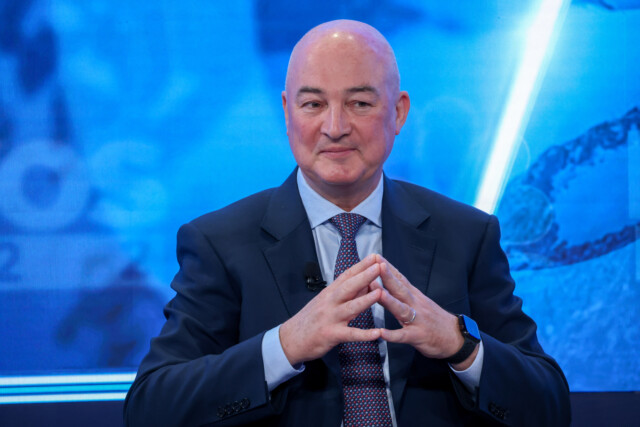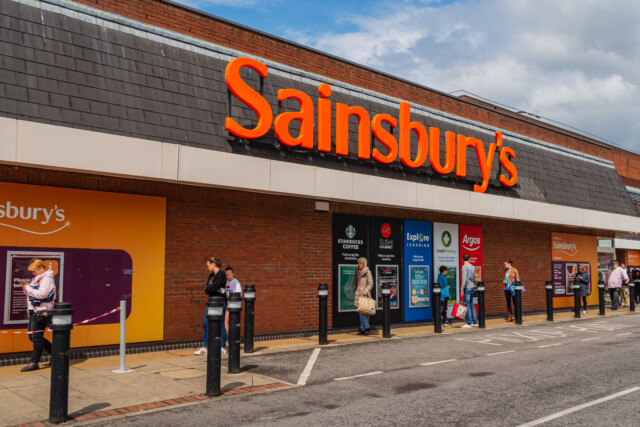
THE maker of Lynx and Marmite has denied profiteering from the cost of living crisis — despite hiking prices by 10.7 per cent.
Alan Jope, the Unilever boss set to leave in June, denied “greedflation” accusations, insisting the conglomerate had handled increases “responsibly”.
Unilever’s boss Alan Jope has denied ‘greedflation’ accusations despite hiking prices of products by 10.7 per cent
Unilever makes products such as Lynx and Marmite
The Bank of England’s chief economist, Huw Pill, said this week that companies refusing to take a hit on their margins risked long-lasting inflation weighing on the economy.
But Mr Jope defended Unilever, saying it had “only passed on 75 per cent of the extra costs” that it had faced, rather than the full whack of higher transport, ingredients, energy and wage prices.
Unilever still expects to make a 16.3 per cent margin on what it sells this year, meaning the Dove maker will rake in £8.5billion of profit.
Mr Jope, who is on £5million a year, argued profit margins had fallen this year as evidence it was not profiteering, though margins are only just below what they were in 2019, 2020 and 2021.
Hiking the price of its household products meant Unilever was able to beat City expectations, delivering 10.7 per cent of underlying sales growth in the past three months, better than predictions of 7.2 per cent.
And Unilever boasted shoppers were swallowing the higher costs of its brands, with sales volumes only dipping by 0.2 per cent.
When asked whether Unilever’s £662million share buyback, dividend and healthy profit margins should mean that it could lower prices, Mr Jope said: “The future of capitalism is a longer subject for another day”.
And despite drops in global energy prices and wholesale food commodity prices, Mr Jope said he saw no signs of “deflation” — a price slump — this year.
SAINSBURY’S DRIVE TO CUT PRICE
THE boss of Sainsbury’s has said it will focus on making its own-brand food even cheaper.
This is on top of a Nectar Prices scheme to make 300 popular branded goods up to 50 per cent cheaper and an Aldi Price Match promotion.
 Sainsbury’s is focusing on bringing down the prices of its own-brand food
Sainsbury’s is focusing on bringing down the prices of its own-brand food
Simon Roberts, chief executive, said the supermarket would focus on “entry price-points” for shoppers, who are managing squeezed budgets.
Sainsbury’s say it’s spent more than £560million keeping prices down over the past year.
Mr Roberts admitted Sainsbury’s had been charging “more than what shoppers were prepared to pay.”
Industry-wide food inflation hit 19.2 per cent in March.
The retailer posted a slip in pre-tax profits to £327million from £854million.
Overall sales rose by 5.3 per cent with food sales up three per cent.
Meanwhile, despite Argos being shifted to counters in its larger stores, the former catalogue retailer’s sales improved 9.3 per cent during the year.
RAID HAS ‘CONCERNS’
THE CBI’s new boss has said she raised sexual harrassment concerns when she was at the business lobby group.
Rain Newton-Smith had previously been the CBI’s chief economist for nine years.
She said: “Whenever I’ve seen sexual harassment, I have raised those issues”.
Ms Newton-Smith said that the CBI would be renamed in the wake of the sleaze scandal — which has seen over 60 British businesses suspend or cut their memberships.
A.I.’S BOOSTING META
THE owner of Facebook and Instagram has revived growth after slumped sales.
META posted unexpectedly strong profits of £4.6billion for this year’s first quarter.
Boss Mark Zuckerberg said its artificial intelligence was “driving good results” across the business.
Meta had cut 20,000 jobs in the past year after an online slowdown — but sales have now risen by three per cent.
The win boosted Meta stock 14 per cent yesterday.







